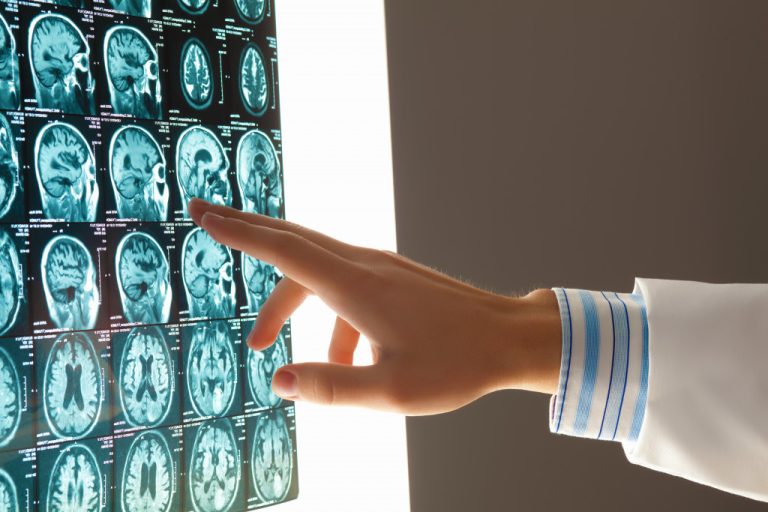Brain injuries are a serious matter. According to the Centers for Disease Control and Prevention, approximately 2.5 million people in the United States every year seek medical attention for a brain injury. Of those, about 50,000 die, and another 80,000 are permanently disabled.
There are many different brain injuries, but most can be classified into open and closed-head injuries. Open head injuries occur when an object pierces the skull and breaches the dura mater, the brain’s outermost layer. A visible wound on the head often accompanies this type of injury. On the other hand, closed head injuries occur when there is no direct contact between the head and an object. Instead, this type of injury is typically caused by a sudden impact or jolt to the head.
Both open and closed head injuries can cause severe damage to the brain. Some common brain injury symptoms include headache, nausea, vomiting, confusion, dizziness, fatigue, difficulty speaking or understanding speech, and difficulty with balance and coordination. In some cases, these symptoms may resolve themselves over time. However, in many cases, they persist indefinitely or worsen over time. As a result, you need to perform the following steps immediately.
Try to Remember the Cause
Brain injuries can be caused by several things, from falls to car accidents. Remembering the cause of your head injury so that doctors can better understand your type of injury and how to treat it best. Knowing the cause of your brain injury can also help you avoid further damage in the future. For example, if you know you tend to fall stairs, you can take extra precautions to avoid another head injury.
With the cause known, doctors will be able to determine the best course of action and any treatments that may be necessary. Unfortunately, there might be some cases where you can’t determine the cause of the injury. In these instances, doctors may choose to treat symptoms rather than define the underlying cause.
Get Medical Attention Right Away
If you or someone you know is experiencing any brain injury symptoms, it’s essential to seek medical attention immediately. Prompt treatment can help minimize long-term effects and ensure a quicker recovery. Even if you don’t think the symptoms are severe, it’s better to err on the side of caution and get medical attention as soon as possible.
Your doctor may perform a variety of tests to determine the severity of your injury and any treatments that may be necessary. This could include imaging scans such as CT (computed tomography) or MRI (magnetic resonance imaging). These tests can help the doctor identify internal bleeding, swelling, and other types of damage. You can also get an open MRI test if your brain injury prevents you from lying down on your spine.
Medical care will be vital to both short- and long-term recovery. Your doctor may prescribe medications to reduce swelling, physical therapy, or other treatments to help with cognitive function.
Take Recovery Seriously

Brain injuries will differ for everyone, and the recovery process will also vary. It’s essential to take your recovery seriously and follow your doctor’s instructions. Your recovery may include resting as much as possible and following a treatment plan from your healthcare provider.
Be sure to get plenty of rest, eat well-balanced meals, drink lots of fluids, and avoid activities that can increase blood pressure or cause further injury. While it might be challenging to avoid all activities, be sure to take any restrictions seriously and follow your doctor’s instructions. In some cases, surgery may also be necessary to repair any damage.
Sometimes, you might require physical, occupational, or cognitive therapy to help improve your condition and prevent long-term effects. Therapy can also help you learn how to cope with the symptoms and any necessary lifestyle changes.
Maintain a Healthy Lifestyle
One of the best ways to protect your brain is to maintain a healthy lifestyle. Eating a balanced diet and exercising regularly can help promote cognitive health and reduce the risk of experiencing a head injury. Additionally, ensure you get enough sleep every night because this helps promote optimal brain function.
Finally, avoid activities that can increase your risk of head injuries, such as contact sports and hazardous activities. If you are involved in any potentially dangerous activities, take the necessary precautions to protect yourself from damage.
Long-term effects might still be present if a head injury is left untreated or improperly managed. If you or someone you know experiences a head injury, follow these steps for the best possible outcome and long-term protection of your brain.
Final Thoughts
Protecting your brain after a nasty bump is essential for ensuring long-term health and well-being. Remember the cause of the injury, seek medical attention immediately, follow your doctor’s instructions during recovery, and maintain a healthy lifestyle. Taking these steps can help minimize any long-term effects and ensure you have the best possible outcome.











